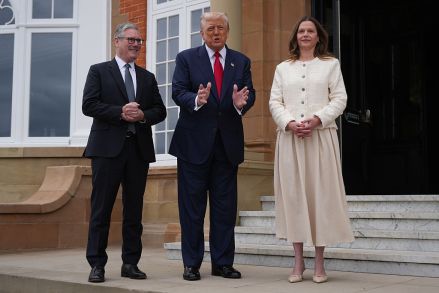It’s often the rotator blades of Marine One that blare over Donald Trump’s voice as he stands near the helipad on the south lawn of the White House. In Turnberry, Scotland, it was bagpipes. Trump, playing host to the British Prime Minister in Britain, performed his now familiar ingratiation ritual as he welcomed Sir Keir and Lady Victoria Starmer to his golf course. “Our relationship is unparalleled,” he said, above the din. He flattered the PM’s wife and even suggested, in his delightful nonsensical way, that she is a well-known figure all over the United States. Lucy Dunn is joined by US editor Freddy Gray and political editor Tim Shipman to




















